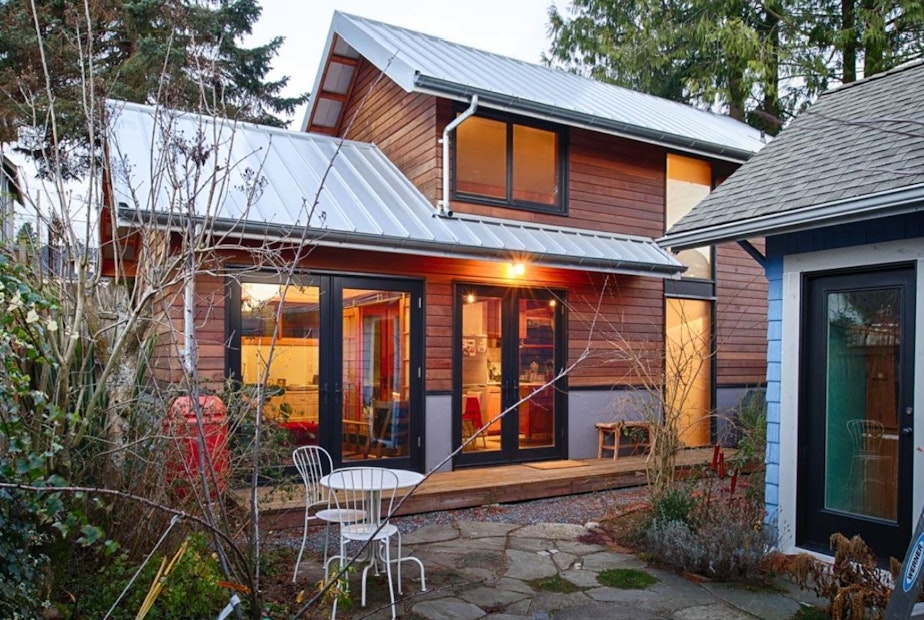Backyard cottages take off in Seattle. But who benefits?

The growing popularity of backyard cottages can be traced back to 2019. That's when Seattle changed zoning laws with the goal of making "accessory dwelling units" easier to build.
A new report from the city breaks down how accessory dwelling units are being used. It also reveals disparities in who can afford to build them.
When Seattle made it easier to build accessory dwelling units (ADUs) a few years back, a lot of people worried that they’d all become Airbnbs, but a survey in the city's new report suggests only 11% of them are used in that way.
RELATED: The pros and cons of Airbnbs in Seattle
Nick Welch is a planner with the city of Seattle's Office of Planning and Community Development. He said part of the value of accessory dwelling units are their flexibility to meet changing household needs.
"Someone may initially use it for a time as a short term rental, and then they may grow tired of the upkeep associated with that," he said. "And they may decide to rent it out on a long-term basis to a tenant."
Sponsored
It turns out that is the most popular use for ADUs: as long term rentals to a stranger. Another 20% rent them to a friend of family member — often free of charge. A smaller number use them as home offices or guest suites.
Accessory dwelling units, on average, tend to rent out for less than the average Seattle one-bedroom apartment, Welch said.
But the report also reveals a challenge predicted back before the reforms by Welch.
In a blog post in 2018, he wrote, "ADUs are likely to remain feasible only for homeowners with substantial financial resources and equity in their home. Given the racial disparities in income, wealth, and homeownership in Seattle and nationally, we need proactive strategies if we want the benefits of ADUs to be shared equitably."
Sponsored
As part of its effort to combat racial inequity, the Seattle City Council also approved a pilot program that would help low-income families pay for accessory dwelling units by offering them low interest loans or zero-interest grants. The program was assigned $2.5 million in the 2020 budget to start with, and had begun using a racial equity toolkit to make sure the program would serve the people who needed it most.
Then the pandemic hit, and the money was reassigned to fund some other pressing need. And so, the overrepresentation of white accessory dwelling unit homeowners is not a surprise.
Nick Welch said he hopes the city's Office of Planning and Community Development can get back some of those tools, perhaps as part of its larger effort at expanding housing choices under the One Seattle Plan, "so that ADUs and other housing types can really realize their potential as an anti-displacement strategy."
At the same time, Washington state lawmakers are considering multiple bills to encourage more backyard cottages and mother-in-law apartments statewide. They're also considering a bill that would create funding assistance for marginalized groups once excluded from homeownership by racist covenants.




